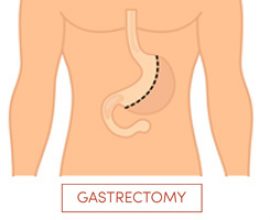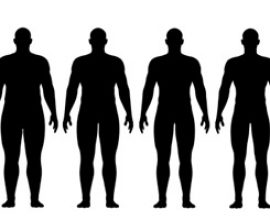Gastric Sleeve vs. Other Weight Loss Procedures

Bariatric procedures work in two main ways—by restricting the capacity of the digestive tract or by promoting malabsorption. Both of these mechanisms restrict energy intake and promote weight loss. Whether someone is a candidate for a gastric sleeve or another weight loss procedure depends on several factors and is best determined by a bariatric physician.
Learn more about the gastric sleeve and other weight loss procedures before your bariatric surgery consultation so that you can have an informed discussion with your doctor about which procedure is right for you.
The Gastric Sleeve
The gastric sleeve, or sleeve gastrectomy, is a restrictive procedure, rather than a malabsortive procedure. That means it works by reducing the volume that can be contained by the stomach. When the size of the stomach is reduced, less food can be ingested in a single sitting without discomfort, regulating energy intake and, ultimately, promoting weight loss.
In the gastric sleeve procedure, a large part of the stomach is excised from the body. What remains is reformed into a sleeve-shaped pouch. In addition to regulating food intake by restricting the volume that can be consumed at any given time, the gastric sleeve reduces the release of the hunger hormone, ghrelin, that is produced in the stomach. The gastric sleeve is unique among weight loss procedures for this hormonal effect.
Other Weight Loss Procedures
Other weight loss procedures include the gastric bypass, gastric band, and duodenal switch. Gastric banding, like the gastric sleeve, is a restrictive weight loss procedure. Gastric banding involves sectioning off a piece of the stomach with an inflatable balloon. The gastric sleeve is permanent because part of the stomach is actually removed from the body, while the gastric band is adjustable or even reversible. While sleeve gastrectomy patients lose an average of 60% of their body weight, gastric band recipients lose 50% or less. Your weight loss goals will determine which of these procedures is right for you.
Malabsorptive procedures like the gastric bypass and duodenal switch are more extreme than the sleeve gastrectomy and gastric band procedures. They are more expensive, require more recovery time, and are more difficult to qualify for. These procedures are reserved for patients with the most weight to lose and demand a complete lifestyle transformation to prevent extreme discomfort due to fat malabsorption.
In summary, the gastric sleeve procedure is ideal for patients who would like to lose up to 60% of their body weight with a restrictive procedure that leads to behavior change (although results may vary). Seek out a bariatric surgery clinic for more information on which surgery or surgeries you qualify for and what method of weight management is right for you.
Related Posts
5 Risks of Obesity
How Sleeve Gastrectomy Works
The Advantages of Orbera
Are You a Candidate for Sleeve Surgery?
Contact Info
3420 Bristol St #700, Costa Mesa, CA 92626, USA
Orange Location
1310 W Stewart Dr. Suite 310, Orange, CA 92868, USA
*DISCLAIMER
In compliance with 16 CFR 255 and Federal Trade Commission Guidelines on the use of endorsements and testimonials in the marketing and advertising of websites:
The testimonials, statements, and opinions presented on our website are only applicable to the individuals depicted, and may not be representative of the experience of others. The testimonials are voluntary provided and are not paid, nor were they provided with free products, services, or any benefits in exchange for said statements. The testimonials are not indicative of future results or success of any other individuals. South Coast Specialty Surgery Center cannot and does not guarantee the medical outcome or the results of individuals utilizing the services provided by us or the providers in our network, or from any of the websites we link, or refer to. The testimonials and endorsements found on the site for the benefit of the site or individual services or procedures are, to the best of our knowledge, the true statements and beliefs of the individuals providing them. In short, surgery involves risk, results may vary, and outcomes are not guaranteed.
Some pages of this website may feature a depiction of a model showing emphasis of the torso. Product names may be mentioned in testimonials or elsewhere, and are trademarks or registered trademarks of their respective holders. Please refer to our Terms and Risks of Surgery pages for more information. Gastric Sleeve Surgery Centers performs Gastric Sleeve Surgery in Orange County, San Diego, Los Angeles, Riverside County and other location in Southern
California.




